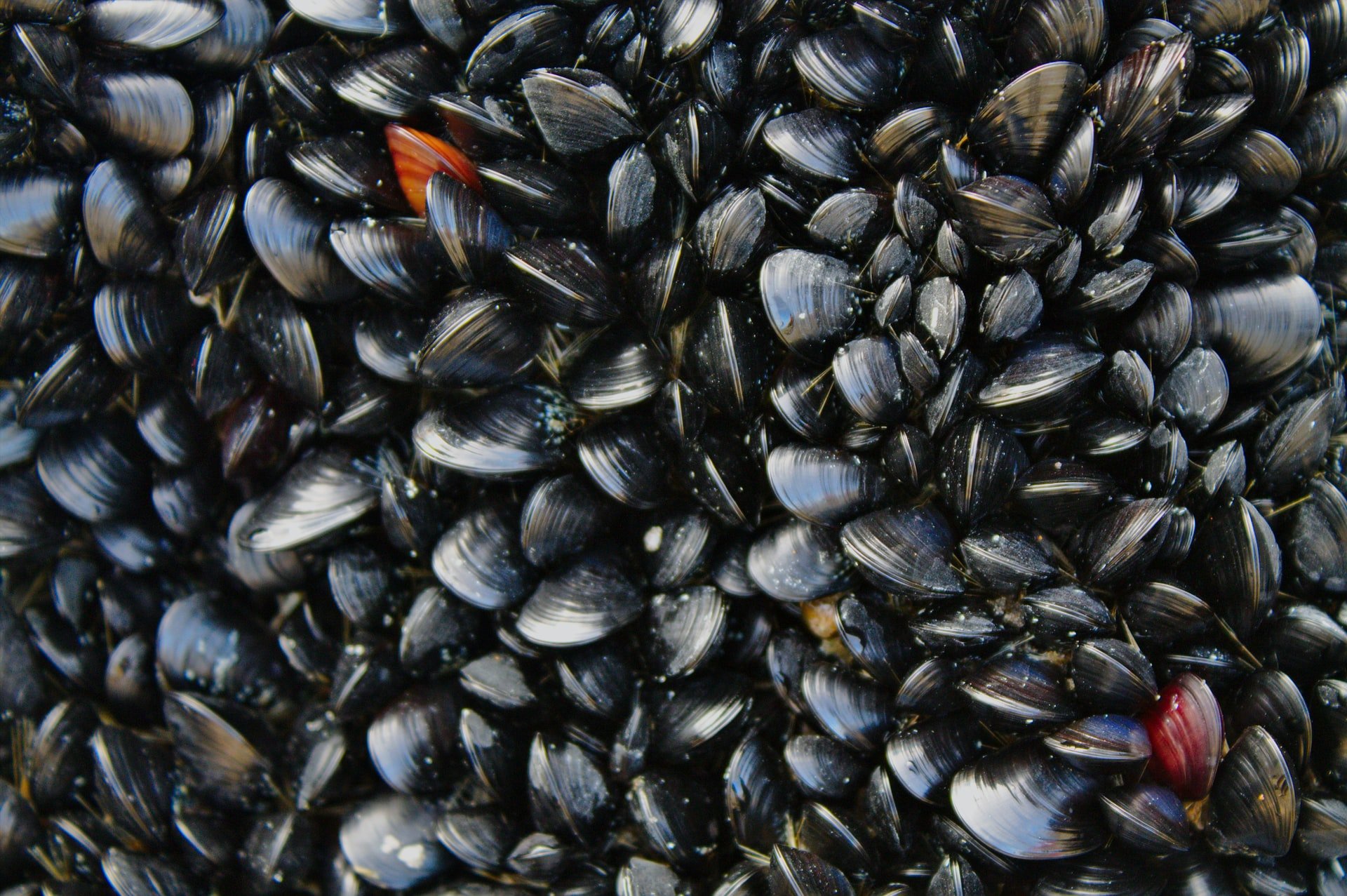
Mussels
Much like oyster farming, local mussel aquaculture can have significant benefits to the surrounding marine environment. Available in Jersey in late spring, they are a great option for a seafood lunch or dinner.
IN SEASON
April, May, June
CATCH METHOD
Aquaculture
ABOUT THE FISH
Mussels
Mussels are a very fast growing bivalve – meaning they have two shell halves. They feed on plankton in the water column, and as a filter feeder they do a great job of improving water quality in the area they inhabit.
A classic part of French cuisine, no trip to Normandy or Brittany would be complete without a pot of moules marinière and an enormous pile of salty french fries.
LOW-IMPACT CATCH METHODS
Aquaculture
Farmed mussels are a very low-impact fish stock. Wooden stakes, known as Bouchot poles, are fixed into the intertidal areas at the Royal Bay of Grouville.
Mussel seed is stuck to a rope which is then wrapped around the poles in a spiral. This is a traditional Norman-Breton method of mussel aquaculture, producing sweet and succulent mussels which are harvested in April, May and sometimes June.
PREPARATION ADVICE
How to cook
Mussels are a very straight forward shellfish to prepare – just as long as you follow the golden rule. Never eat a mussel that is either open before cooking, or still closed after cooking.
Once you’ve discarded any open mussels, steam them in a large pot until the mussels pop open. Once cooked, they have a salty taste and a firm but tender texture, and readily take on flavours from sauces.
RECIPIE IDEA
Moules marinière
The French marinière translates as ‘like a sailor’, conjuring up images of simple, hearty dishes that are as easy to prepare on the dockside as they are in a galley kitchen, rolling on the seas.
Moules marinière is therefore an easy dish to cook at home. At Jersea, we prefer the method taught by chef Alex, who goes by the pseudonym French Guy Cooking on YouTube. His recipe in collaboration with Jamie Oliver is delicious and easy to follow.
You’ll need about 500g of mussels per person. For the sauce, you’ll need shallots, celery, parsley and white wine – plus your preferred herbs to steep in the sauce. Make sure you’ve got plenty of French bread and butter (and some more white wine!) to serve.




